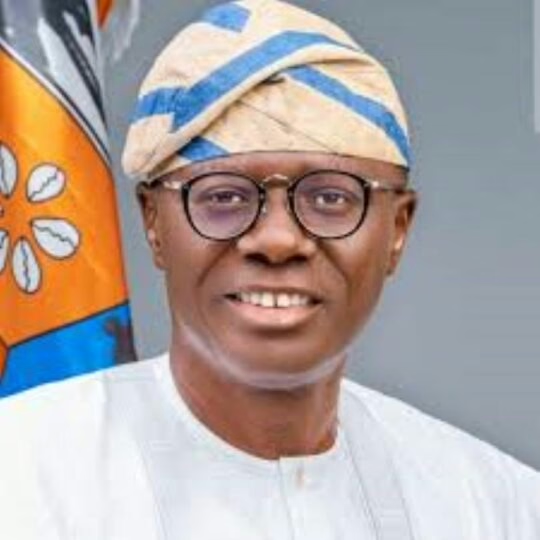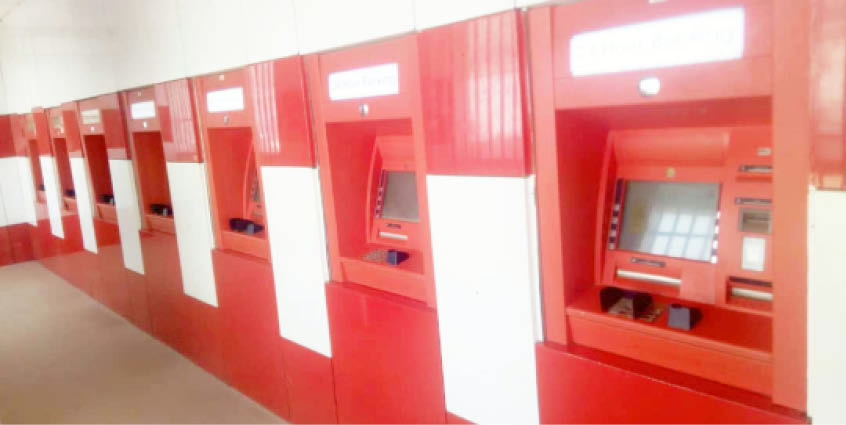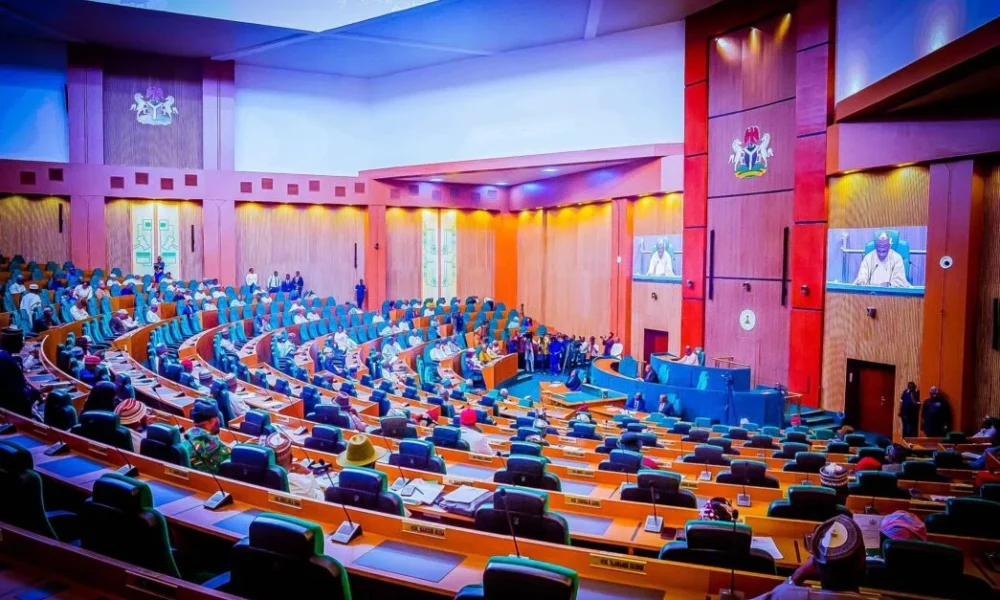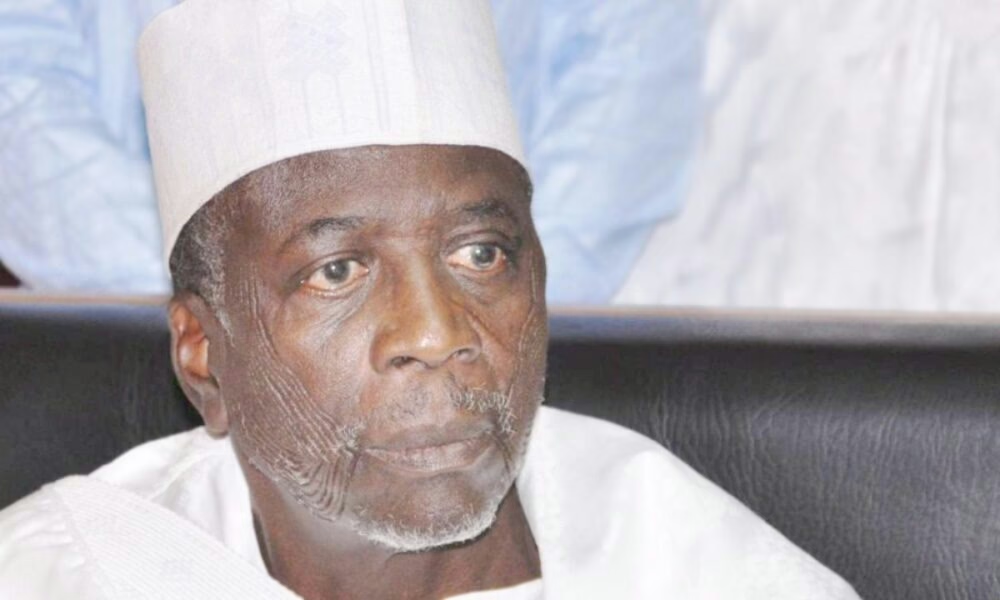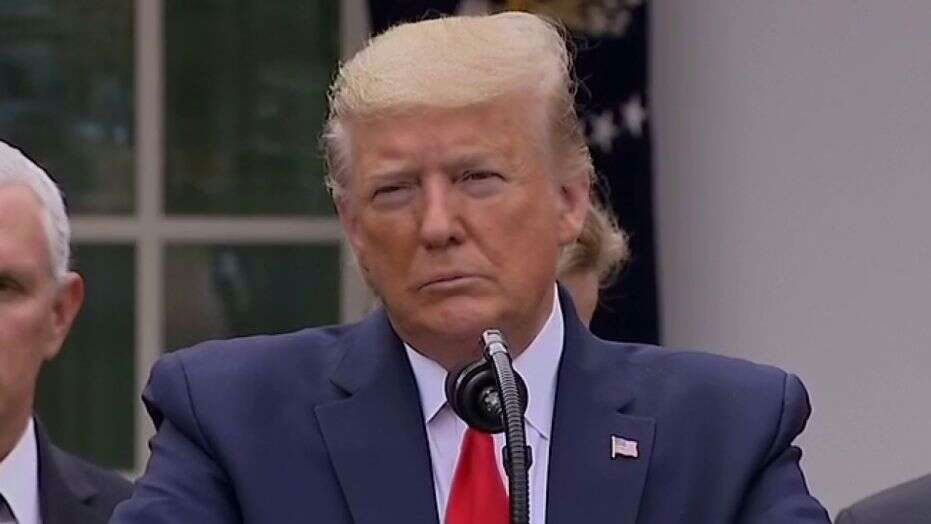The Federal Government on Thursday said a new minimum wage regime would come into effect on April 1, 2024.
The Minister of Information and National Orientation, Idris Mohammed, who disclosed this in an interview with The PUNCH in Abuja, said the current N30,000 minimum wage would expire at the end of March 2024.
Mohammed said this on Thursday as an analysis of the 2024 –2026 Fiscal Framework budgets by our correspondents indicated that the Federal Government would spend N24.66tn on salaries in 2024, 2025, and 2026.
Following the removal of the fuel subsidy by President Bola Tinubu on May 29, 2023, the Federal Government agreed to pay N35,000 to each of its workers to cushion the effect of the subsidy removal.
But the organised Labour insisted that the N35,000 wage award was a temporary measure, adding that the minimum wage should be reviewed in 2024.
The Federal Government’s team and the Joint National Public Service Negotiating Council on October 18, 2019, agreed on the implementation of the N30,00 minimum wage after months of negotiations.
However, Labour unions on Thursday confirmed that they had started a negotiation process with the Federal Government, adding that based on the country’s labour law, the minimum wage should be reviewed every five years.
The Nigeria Labour Congress National President, Joe Ajaero, recently said, “It is open knowledge that the review of the national minimum wage is a matter of the law which is expected to happen in 2024.”
On his part, the Minister of Information and National Orientation, Mohammed, told The PUNCH that the improved take-home pay was meant to replace the temporary palliative measure put in place by the government to ameliorate the hardship caused by the fuel subsidy removal.
New wage regime
He said, “Certainly, there is a new wage regime that will come in on April 1, 2024. That is why these palliatives were targeted so they would cushion economic hardship before then. In our negotiation with Labour, we said that the wage issue was not something one could just fix. A committee that will also involve Labour itself will work on it.
“The committee is being constituted and we are talking to Labour about it. And by the time this current wage regime expires by the end of March, we will expect that a new wage will begin by April. It is in this wage regime that we will now have a proper salary structure for workers across the length and breadth of Nigeria. We expect that the private sector and state governors will also do the same.”
A top official of the NLC, in an interview with The PUNCH, said the organised Labour had initiated talks with the government
He said, “By April 1, 2024, the current minimum wage will expire. We have all agreed to set up a national wage negotiation committee, and that the committee should comprise all parties.’’
Also, the Head of Information of the NLC, Benson Upah, in an interview with The PUNCH said, “The new minimum wage is to come into effect next year.”
N24.66tn for salaries
As the organised Labour demands a new minimum wage, an analysis of the 2024 –2026 Fiscal Framework shows that the Federal Government intends to spend 29.18 per cent of its total budgets for 2024, 2025, and 2026 on salaries, overheads, and pensions.
The total amount budgeted for these three items amounts to N24.66tn; 29.18 per cent of the N84.50tn budgeted for the three years.
With anticipated salary increases from 2024 amid worsening economic conditions, personnel costs, and the two others are expected to jump by 8.51 per cent from the amount (N7.36tn) budget in 2023 to N7.99tn in 2024.
It is then expected to rise by 2.41 per cent to N8.18tn in 2025, and then by 3.77 per cent to N8.49tn in 2026. The amount pales when compared to the N23.37tn (27.65 per cent of its total budget) the government intends to spend on capital expenditure in the period under review.
This signifies the continuation of a culture of high overheads at the expense of high fiscal deficits. As of the end of September 2023, the Federal Government had devoted 29.76 per cent (N3.78tn) of its total spending (N12.7tn) on salaries.
The amount spent on salaries is 157.14 per cent more than the N1.47tn that has been spent on capital allocations for the year.
The government said, “The actual spending was N12.7tn. Of this amount, N5.79tn was for debt service, and N3.78tn for personnel costs, including pensions.
“Only about N1.47tn (25 per cent of the pro-rata budget) has been released for MDAs’ capital expenditure as of September 2023.”
The Federal Government has about N1.5 million workers and it will review minimum wage by 2024. There are concerns that the government is operating a bloated civil service with many agencies with overlapping functions. This has led to calls for agency mergers and scrapping, where they might apply.
With salaries weighing heavily on its spending, the government, in its 2024 – 2026 fiscal framework, said, “The budget deficit is projected to be N9.18tn in 2024, i.e., N4.6tn down from N11.60tn budgeted in 2023.
“The proposed deficit represents about 50 per cent of total Federal Government’s revenues and 3.88 per cent of the estimated GDP (Gross Domestic Product ). The high projected level of fiscal deficit in 2024 is partly attributable to the proposed salary review of Federal workers across board, increased pension obligations, and higher debt service cost.
“At 3.88 per cent, the projected level of deficit is higher than the three per cent threshold stipulated in the Fiscal Responsibility Act (FRA), 2007, but significantly lower than the 2023 level of 6.11 per cent; FRA 2007, however, allows the government to exceed the 3 per cent threshold if justified by threats to national security.”
The fiscal deficit for the three years under review is expected to total N30.89tn. In June 2023, the World Bank disclosed that the Federal Government’s spending on personnel costs and debt servicing exceeded total revenues in 2022.
According to the Washington-based bank, this was the first time the Federal Government’s personnel costs and debt servicing surpassed its total revenue. It noted that the government is spending a lot on these costs, leaving little room for capital expenditure.
It declared, “Overall, the rigidity of expenditure has increased, squeezing fiscal space for the discretionary spending needed to meet development objectives.
Personnel costs and interest payments comprise a growing share of total general government expenditures (59 per cent in 2022) and for the first time in 2022 exceeded total government revenues (102 percent).”
Rising personnel cost is leaving little room for investments in infrastructure and in his budget presentation speech, President Bola Tinubu disclosed that the government would leverage the private sector to plug its capital expenditure spending holes.
He said, “In view of the limited resources available through the federal budget, we are also exploring Public Private Partnership arrangements to finance critical infrastructure.
“We, therefore, invite the private sector to partner with us to ensure that our fiscal, trade, and monetary policies, as well as our developmental programmes and projects, succeed in unlocking the latent potential of our people and other natural endowments, in line with our national aspirations.”
Recently, the Minister of Budget and National Economic Planning, Abubakar Bagudu, declared that the government was only managing to pay salaries considering its dwindling revenue sources.
The minister represented by the Director (International Cooperation), Dr Sampson Ebimaro at an event said, “Government faces enormous challenge especially now, the government is facing revenue deficit. There’s no money anywhere in the country, the government is just managing to pay salaries.
“The growth rate is very slow, and the population growth is fast pacing and increasing. unemployment is surging amid high inflation. These are issues which non-governmental organisations must take on board in helping the government to cover the space government could not cover.”
Over-bloated salaries
Meanwhile, the House of Representatives, on Thursday, condemned what it described as an over-bloated personnel cost in the 2024 budget.
The House therefore urged the Independent Corrupt Practices and Other Related Offences Commission to summon ministries, departments, and agencies over the alleged over-bloated cost.
A member of the House, Sada Soli, drew the attention of his colleagues to what he described as the ‘over-bloated personnel cost’ of ministries, departments, and agencies in the budget cycles.
At the debate on the general principles of the 2024 budget on the floor of the House on Thursday, Soli, a member of the House of Representatives from Katsina State, described the budget as ‘unique’ in a number of ways.
Most importantly, he called on the House to take a close look at the excessive personnel cost of MDAs, saying, “Let the committees’ chairmen look at the issue of personnel cost because they are over-bloated.
“I know that the Independent Corrupt Practices and Other Related Offences Commission used to summon agencies to come for audits on their personnel cost because it is over-bloated. This is very important and we need to look at it.”
He also spoke about the states and the Federal Government collaboration saying, “For the first time, I am hearing in the budget speech that the President is mentioning collaboration with subnationals.”
He added that such collaboration would encourage states to make adjustments to their budget peculiarities.
He further stressed that the National Assembly should pay attention to the procurement process, describing it as “too cumbersome” even as he urged the Federal Government to “clean up” the Integrated Personnel and Payroll Information System.
The House commenced the debate on the N27.5tn 2024 budget on Thursday, preparatory to passage for second reading.
Leading the debate on the general principles of the budget, House Leader, Julius Ihonvbere, commended the President for putting together what he called a holistic budget that was meant to cater for Nigerians of all walks of life.
He said, “In considering the budget of any nation or organisation, you must first consider a few principles. The first is what you have or what are you going to earn. The second is what are you going to spend?
“The third is how your budget did in the previous years. The fourth is what is the difference in this particular budget that you are presenting? And finally, there is the global, domestic, and sub-national context in which your budget is supposed to function.
“The budget drew our attention to the Renewed Hope Agenda so that we have a holistic understanding of where the President was coming from and where he intended to take Nigeria. The budget focused on fiscal challenges in the economy, and the need to tackle insecurity and expand the economic space.
“Special attention was given to education, which particularly made me very happy. The budget tends to look at strategic areas into which the budget will deploy resources.”
Speaking on the security mileage of the 2024 proposed budget, the House Leader said, “I cannot go to my constituency because of the dreaded Auchi-Benin expressway. There is no other way to get there (his village) because of security issues.
“And I am sure, we have moved motion upon motion on insecurity. And I believe that when security is properly tackled in this country, among other things, there will be an increase in the production of goods and services.
“Many businesses today close by 6pm because they are afraid that they will be raided. Many farmers do not go to their farms because of bandits, kidnappers, and assassins.
“Transporters have reduced their fleets to safe areas, similarly, because of insecurity. Even parents have withdrawn their kids from certain schools and are paying double the fees in certain areas that they consider to be safe. The focus of this budget on security as a prime area is a very positive move, for which we must give support.”
That said, Ihonvbere called on his colleagues to give the budget proposal an accelerated consideration.
On his part, a member representing Dambowa/Gwoza/Chibok Federal Constituency, Borno State on the platform of the All Progressives Congress, Ahmadu Jaha, argued that the 2024 budget proposal was a demonstration of President Tinubu’s readiness to address the infrastructural challenges the nation had been battling for decades.
“By providing a substantial amount of money or a reasonable figure for capital projects shows that the government is serious about embarking on a series of developmental projects.
“As we are all aware, of all evils, unemployment is the worst because an idle mind is the devil’s workshop. By diversifying the economy, there is definitely going to be a development of our population which by extension will give our people a sense of belonging,” he added.
In his contribution, The House Committee Chairman on the Navy, Yusuf Gagdi, called on his colleagues to queue behind the President to realise the goal of his administration.
He said, “The President is ready for business. Our own is to provide robust oversight engagement. We must do this to ensure that we support Tinubu to deliver the dividends of good governance, otherwise, the expectation of Nigerians will not be satisfied.”
Gagdi who represents Kanke/Pankshin/Kanam Federal Constituency, Plateau State commended Tinubu’s prioritisation of capital projects, adding that for no reason should the country borrow to fund recurrent expenditure.
An opposition lawmaker, Isah Ali championed a different cause when he was given the floor to make his contribution. Ali, a member of the Peoples Democratic Party representing Balanga/Biliri Federal Constituency, Gombe State, argued that until the lives of Nigerians are touched positively by the budget, the allocations to sundry sectors make no real sense.
“I want to see a budget where Nigerians will have a sense of belonging. We, as lawmakers, must diligently scrutinise the budget because this is what is important. It is one thing to have a good budget, it is another thing to have it implemented. Let us ensure that at the end of the day, we will have at least 70-80 per cent implementation of the budget,” he advised.
In the upper legislative chamber, the Senate President, Godswill Akpabio, stated that the appropriation bill would be passed for a second reading on Friday.
The debate on general principles of the budget was led by the leader of the Senate, Senator Opeyemi Bamidele ( APC Ekiti Central ).
He said. “The budget is still high on recurrent expenditure at 40% of the budget especially with a deficit of N9.8 trillion that has to be financed from borrowing.
“ The alternative which would be suicidal would be to cut expenditure and shrink the economy as it could lead to massive job loss.”
In his remarks after the debate, Akpabio said, “The budget will be passed for second reading on Friday this week after contributions from other Senators who have indicated interest to do so .”


